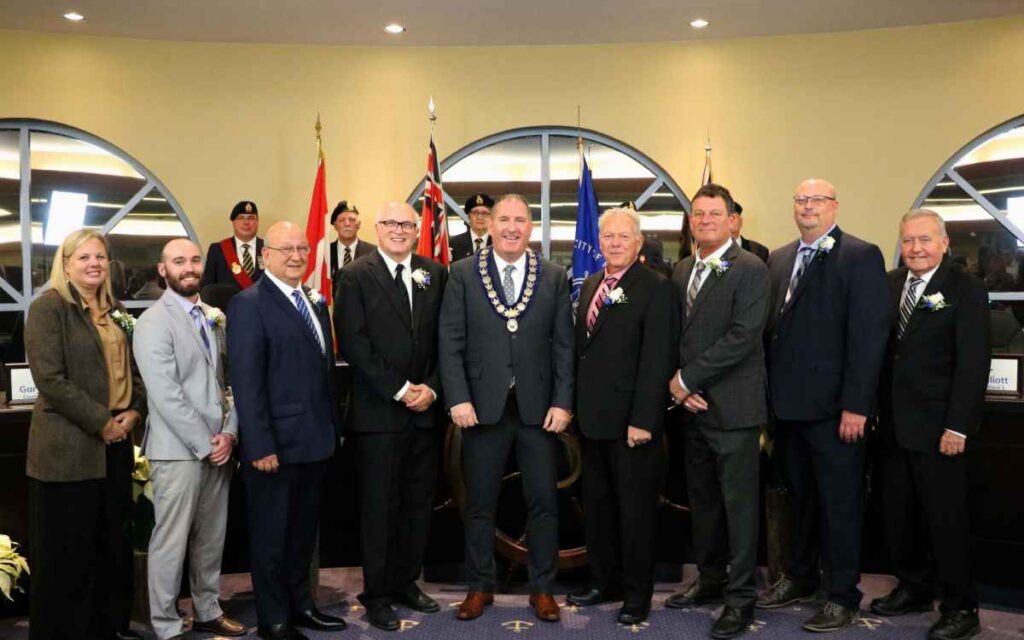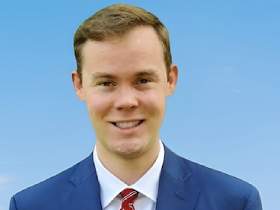
When education, regional and municipal components are included, the tax bill is projected to have increased by 6.45 percent. Pictured: Port Colborne councillors. Photo Credit: City of Port Colborne.
As the calendar steadily inches closer to 2025, residents of the City of Port Colborne are poised to contend with more than post-Christmas bills and inflationary pressures in the new year. The average assessed home is projected to endure a $282 tax hike as the city seeks to increase capital spending.
In October, Port Colborne councillors held a lengthy meeting to create the framework for Budget 2025. Ultimately, the council greenlighted expanded capital and operating budgets. When education, regional and municipal components are included, the tax bill is projected to have increased by 6.45 percent.
The education part of the bill is not subject to an increase. However, the regional portion of the bill, which has not yet been officially approved, is predicted to increase by 8.27 per cent. The city portion of the bill is going up by six per cent.
When all is said and done, the city is seeking to spend $26,861,200 on the total levy, which covers all capital and operating costs. Slightly more than 20 percent of this figure consists of the servicing costs of municipal debt used to fund capital projects, as well as the capital budget itself.
Capital and related projects, however, account for more than 16 per cent of the entire budget, at $4,378,375, which translates to 55 per cent of the increase. Simply put, the capital budget is increasing at a much higher rate than the operating budget.
The city is defending the capital spending hike by persuading that the funds are necessary to address the infrastructure gap. They say that construction costs on capital projects are currently experiencing about five per cent inflation every year. This number almost doubles the general inflation rate. It was also explained in the city’s inaugural asset management plan, which was released this year, that capital spending should continue to increase by 20 per cent a year, for at least the next seven years, to meet the infrastructure needs of the city.
Upcoming projects include water and wastewater system upgrades, such as $4.7 million for the rehabilitation of a wastewater lateral and maintenance hole, as well as $6.1 million for a water line replacement. $697,000 has been set aside for sidewalk improvements, as well as $2 million for park enhancements and $2.4 million for a culvert and bridge replacement. There is also $203,000 being dedicated to improving the Vale Health and Wellness Centre, and $550,000 to fund a new roof for the library.
Bryan Boles currently serves as the Treasurer for the City of Port Colborne. Boles strongly believes that it is necessary to address the infrastructure gap promptly and argues that delaying projects will stand to increase the cost in future years, based on current inflation levels.
Boles also says that the operating budget, in general, is growing at approximately the rate of inflation. He pointed out that the consumer price index has risen by 19 per cent in 2019 while operations have gone up 14.75 per cent in the same period, observing a modest discrepancy.
While infrastructure is a legitimate use of public dollars, there is currently very limited tolerance for increased taxes from any level of government. Federal carbon taxes are continuing to compound, and multiple polls from major companies such as Leger and Equifax Canada have found that approximately one-half of Canadians are living pay-cheque-to-pay-cheque.
In addition, with a new American President and Congress preparing to assume office in January, and a Canadian federal election scheduled for some time in 2025, significant changes to North American fiscal and monetary policies appear to lay ahead. These realities may make it more difficult to convince residents that inflation levels will remain high, and therefore, that it is not worth slightly delaying some capital projects in an attempt to reduce the burden on taxpayers.

Nick Redekop completed his Honours Bachelor of Arts Degree in Labour Studies at Brock University. He has previously served in municipal and federal politics. In his free time, Nick enjoys following sports, taking part in outdoor activities, and reading biographies. Nick resides in Niagara Falls




















